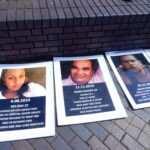Murder of Criminal Lawyer: Is the Mob Responsible?

The murder of a prominent criminal lawyer in Melbourne’ed down outside his Brunswick gelato shop last week, police reporting that a senior mafia figure was responsible for the ‘targetes inner north has raised concerns over the power of the Calabrian mafia in Australia. Joseph “Pino” Acquaro was gunnd attack’.
Mr Acquaro had represented suspected mafia bosses Rocco Arico and Francesco Madafferi, but recently ended his association with all mafia-connected clients. Police reportedly advised Mr Acquaro that a $200,000 contract had been taken out on his life after a feud with an alleged Calabrian crime boss.
Who is the Calabrian Mafia?
Mr Acquaro’s murder has drawn attention to the secretive crime organisation known as the ‘Ndrangheta’, or Calabrian mafia.
The organisation is one of the three largest mafia organisations in the world, alongside the Cosa Nostra of Sicily and the Camorra of Naples. Its 2013 revenue was estimated at €53 billion, or 3.5 per cent of Italy’s GDP, and Australia is reported to be an integral part of its global money-laundering operations.
The history of the Calabrian mafia in Australia dates back to 1922, with the arrival of the Re D’Italia ship in Adelaide. According to a 1960s ASIO report, the Re D’Italia carried three ‘Ndrangheta godfathers who set up cells in Melbourne, Sydney and Perth. Family members soon followed from Italy and within a decade, the seven families began to exert control over the fruit and vegetable trade in Australia.
The Calabrian extortion racket, which expanded to Sydney’s seafood markets, was often maintained through violence, and by 1940, 30 bombings had been attributed to the ‘Ndrangheta in Australia.
The group is believed to be responsible for nearly 40 murders in Australia since the mid-1970s, and continues to maintain close administrative and financial ties with its Italian mother organisation.
Drug Trade
The ’Ndrangheta controlled much of the Australian cannabis trade in the 1970s, after which it diversified into cocaine, ecstasy and methylamphetamine.
The group is believed to be the single biggest importer of drugs into Australia, with AFP Commissioner Mick Keelty estimating it imports 60 per cent of all drug importation into the East and South coasts of Australia, including a 2007 shipment to Melbourne of nearly 20 million ecstasy tablets.
The ‘Ndrangheta is believed to control the importation of large quantities of methamphetamine, and particularly ice, into the country. “Australia is not a target nation anymore, it’s now like a state of Italy from a criminal perspective,” a senior Italian officer said after a bust in Calabria. “They have not got an expansion strategy with your country anymore, it’s not expansion its consolidation.”
Criticism of Australian Authorities
1. Confused priorities
Prominent Calabrian prosecutor Nicola Gratteri says that his repeated warnings to Australia have largely been ignored, with Australian authorities continuing to underestimate the size, strength and spread of the ‘Ndrangheta. Last year, Mr Gratteri said action to combat ‘Ndrangheta in Australia is inadequate – warning that the families leading the organisation are growing stronger.
‘Organised Crime in Australia 2015’ is the Australian Crime Commission’s biennial public report. The report has largely ignored the Italian mafia – briefly mentioning it just twice, while ‘bikie gangs’ feature prominently throughout. The National Ice Taskforce’s final report replicates this, making no mention of the mafia, with only a generalised reference to transnational crime groups.
2. Breakdown of communications with Italian authorities
In the wake of Mr Acquaro’s murder, Italian authorities have called for a joint investigation, with overseas anti-mafia prosecutors looking to strengthen communications between the two nations with a view to disrupting Calabrian activities.
University of Essex criminologist Anna Sergi says the strength of the Calabrian families is propped up by their three strongholds outside of Calabria in Lombardia (northern Italy), Canada and Australia. “When we talk about this with Italian prosecutors they are always very angry about Australians in this sense, because apparently there is the problem that they have with intelligence sharing,” Dr Sergi said.
Australia’s apparent dismissal of the mafia threat was evidenced by the AFP liaison post in Rome being closed down in 2002, with this responsibility being given to an agent based in Belgrade in Serbia, who is also expected to liaise with police in Russia, Croatia, all of the Balkans, Malta and Greece; 22 countries in all.
3. Criticism of Australian authorities
Australian authorities have been criticised for their silence regarding the threat of mafia influences in Australia’s criminal landscape.
Former NSW police assistant commissioner Clive Small investigated the Calabrian Mafia as part of the Woodward Royal Commission. He reported that for 16 years, authorities had been denying there was Calabrian Mafia in Australia and had ignored recommendations to set up a long-term anti-mafia offensive. It was not until 2011 that authorities finally recognised that the Calabrian mafia have a foothold in Australia, while giving little indication of their understanding of the group, or the threat posed.
Mr Small believes that the silence of senior government officials is partly driven by political expedience. “If we say it doesn’t exist, then we don’t have to do anything because there’s nothing to respond to and I think that’s the problem,” he said. “It’s been hidden from the public because it’s too big a political problem.”
4. Political influence
A more concerning possibility is that the mafia has gained political influence through donations, leading authorities to turn a blind eye to their activities.
An investigation by Four Corners reported that the ‘Ndrangheta had used several well-known party donors to put a “legitimate public face” on its activities. These donors lobbied on behalf of mafia figures to host Liberal and Labor events and provide funds and benefits to political parties, exploiting loopholes in our systems of donations. “As it stands, political parties and candidates can receive significant support and financial contributions through avenues not covered by the statutory disclosure regime,” an AFP report said. “Loopholes” in the oversight system mean it is “difficult to identify any bribery in the form of political donations”.
The reluctance of the Australian government to act against the Calabrian mafia is likely due to a range of factors – perhaps it is economically and politically preferable to focus on easier targets.






